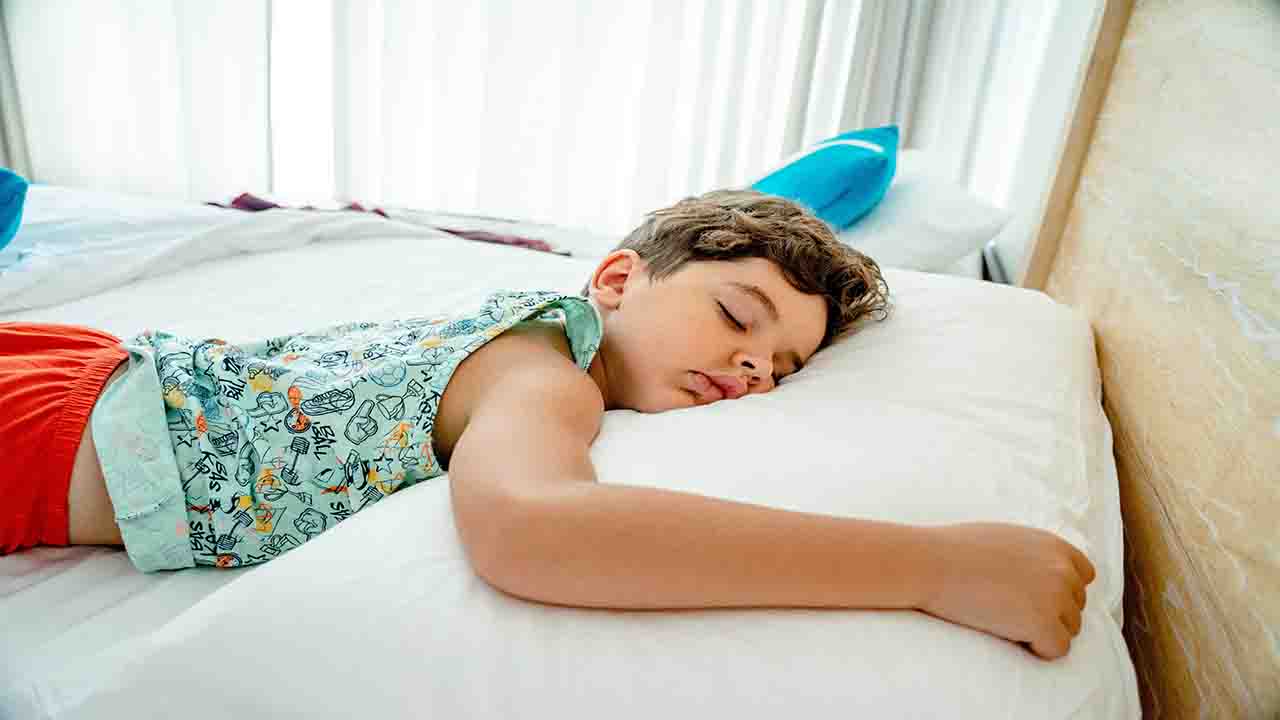Health Australia (Commonwealth Union) – New Research from Flinders University Reveals Consistency in Sleep Patterns for Australian Boys Aged 10-12.
Recent research conducted has shed light on the sleep patterns of Australian boys between the ages of 10 and 12. This study, led by Dr. Chelsea Reynolds, a Clinical Psychologist at Flinders University, has yielded valuable insights into the sleep behavior of pre-adolescent boys, offering potential guidance for understanding and addressing sleep-related issues in this age group.
The study’s findings suggest that the time it takes for Australian boys to fall asleep remains relatively consistent between the ages of 10 and 12. This discovery carries significant implications, as it implies that children’s sleep difficulties during this age range may be more closely linked to social and behavioral factors rather than biological ones.
Previous research had indicated that as children transition into adolescence, they tend to develop a higher tolerance for sleepiness in the evenings. This tolerance can result in longer periods to fall asleep, potentially leading to feelings of fatigue upon waking up for school or weekend activities.
To explore the timing of this shift in sleepiness levels among pre-adolescent boys, the research team invited twenty 10-year-old boys to participate in an 18-month-long sleep study. During this period, the boys attended sleep camps every six months, engaging in daytime activities while their sleep was carefully monitored throughout the night using various tests.
Throughout the night, the boys were awakened if they displayed signs of falling asleep. These assessments were conducted nine times, spanning from 7:30 pm to 3:30 am, enabling sleep experts to measure the duration it took for them to reach the point of sleepiness again.
Dr. Chelsea Reynolds emphasizes that while biological changes during puberty can indeed pose challenges to adolescent sleep, the study’s results indicate that these changes do not typically become problematic until after the age of 12. The research findings revealed that the 10-year-old boys took varying amounts of time to fall asleep, with longer durations at the beginning of the night and quicker sleep onset as the early morning hours approached and fatigue set in.
“However, what was interesting was that across the 18-month period, the boys took about the same amount of time to fall asleep during each sleep test. This means that their sleep remained stable over time. Overall, this indicates that for boys up to 12 years of age, they will not experience any changes to their sleepiness levels in the evening.”
“What happens after the age of 12, however, is still to be researched in this same level of detail over time. We’d expect that some time before the age of 15, they will start to show less sleepiness in the evening and take longer to fall asleep. That is the time when parents may start seeking help for their teenagers who can’t get up on time for school.”
These insights contribute to a deeper understanding of sleep patterns in pre-adolescent boys and may help inform future therapies and interventions to address sleep-related issues in this age group.
Dr. Reynolds highlights the prevalent issue of teenagers seeking assistance from sleep psychologists due to challenges related to delayed sleep patterns and excessive morning sleepiness.
Consequently, treatments aimed at addressing sleep issues in this age group may prioritize factors such as nighttime anxieties, bedtime routines, and enhancing the sleep environment for adolescents.
This valuable research, titled ‘Development of Evening Sleep Homeostatic Pressure in Early Adolescent Boys,’ authored by Chelsea Reynolds and her esteemed colleagues, including Michelle Short, Michal Kahn from Tel Aviv University, Cele Richardson from the University of Western Australia, Melanie Heath, Hannah Whitall, Leon Lack, and Michael Gradisar from Wink Sleep and Sleep Cycle, has been published in Sleep Medicine.








